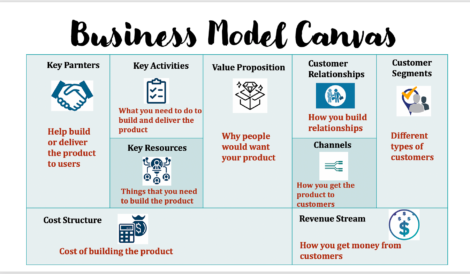In today’s competitive job market, searching for a job can be very time consuming and challenging. However, with a well-structured strategy and the right approach, you can increase your chances of finding the job that suits you best. Job search strategies are constantly evolving with the new economy which makes it essential that you keep up with the changes and adapt your techniques to ensure that you don’t get left behind!
In order to correctly search for a gob, these five steps are very important:
1. Define Your Career Goals – What do you want to do and why?
If you don’t know what work you really want to do, how do you know where to look for it? Hence, a self-assessment will assist you in narrowing down your job search to 2-3 key industries. Take time to reflect on your skills, strengths, weaknesses, interests, and values. What kind of work makes you excited to get out of bed in the morning? Understand your career goals and the type of job that aligns with your aspirations. This self-awareness will be crucial throughout the job-seeking process.
Ask yourself a few critical questions:
- What unique skills and attributes do you offer?
- What do you enjoy doing?
- What skills do you want to use at work?
- What is essential for you to enjoy work? Consider the opportunity for advancement, your need for flexibility and creative freedom, what work-life balance you want, and rewards (financial and others).
- What goals are realistic for you considering your education, skills and experience?
2. Research Your Options – Locating the Hidden Job Market
Once you have a sense of what work you want to do, research is necessary to determine where the employment opportunities are. Once you’ve identified your career goals, begin researching potential employers, industries, and job opportunities. Attend career fairs, workshops, and conferences to build a network of professionals who can guide you in your job search.
Asking key questions can narrow down your work search tremendously.
- What type of work fits with your answers from the above questions?
- Which businesses and organizations offer this type of work?
- What are these employers looking for in an employee?
- Who are the key people you need to network with?
Conduct your research by using the internet such as company websites and LinkedIn, through networking opportunities or informal meetings with employees of the company, and by reading a variety of newspapers, business reports and trade magazines. Also look for specific labour market information (e.g which companies is recruiting or expanding operations). Make it your goal to know what is happening in your desired career. From this information, set employment-related goals and develop a list of job options to explore.
3. Networking Opportunities – Tapping into the Hidden Job Market
When conducting your research on employment options, you will begin to unravel the ‘hidden job market.’ As over 85% of jobs are never advertised, this leaves a lot of employment opportunities to be discovered. Utilize social networking platforms like LinkedIn to connect with individuals in your desired field.
Employment experts agree, networking is a significantly better way to secure job than sending resumes to advertised job postings. Networking can be done a variety of ways: it can include:
- Making connections on LinkedIn with top players in your chosen field,
- Attending industry annual general meetings, conferences and career shows,
- Joining industry associations and active participations in their activities,
- Sending mails or LinkedIn message to pitch yourself or ask for recruitment information with key decision makers in your chosen field.
- Talking to family, friends, mentors, former or present colleagues, and members of organizations you belong.

4. Marketing – Make the most of your Resume, Cover Letter and LinkedIn!
Through these carefully nurtured networking opportunities you will begin hearing about employment opportunities. When you hear about an exciting opportunity don’t wait for them to advertise it – go speak to someone in the company. You can spend an email with your email and cover letter to the HR department or contact them on LinkedIn. At this time, it is very important that you have the right resume, cover letter and LinkedIn to demonstrate your competence for the role. This is why a well-thought out and carefully-worded cover letter and resume are imperative.
Your resume and cover letter are your first impressions on potential employers. Tailor your resume to highlight relevant skills and experiences that match the job description. Craft a compelling cover letter that demonstrates your enthusiasm and commitment. Seek feedback from peers and mentors to ensure your application materials are strong.
Before applying, research the companies you are interested in. Understand their mission, values, and culture. Tailor your application to align with the company’s objectives, demonstrating your genuine interest in their organization. When using LinkedIn to search for openings, customize your searches with specific keywords, job titles, and locations. Set up job alerts to receive notifications when new positions are posted.
5. Volunteering – A Proven Stepping Stone to Paid Employment
A key ingredient many students, graduates and young professionals use to ensure a successful transition to work is volunteering. Through volunteering you will have the opportunity to use the skills and knowledge you gained in school; you will acquire job related skills and experience and be able to network with people and these will position you for gainful employment.
In conclusion, a successful job search requires preparation, research, networking, and persistence. By following these steps, you can enhance your job-seeking strategy and increase your chances of landing the job that aligns with your career goals and aspirations. Remember that every job search is a valuable learning experience, bringing you one step closer to your dream career. Job searching can be a lengthy process filled with rejections. It’s essential to stay positive, maintain self-confidence, and persevere. Your ideal job may be just around the corner.




